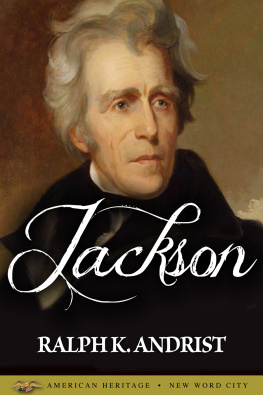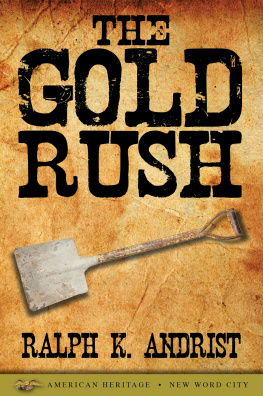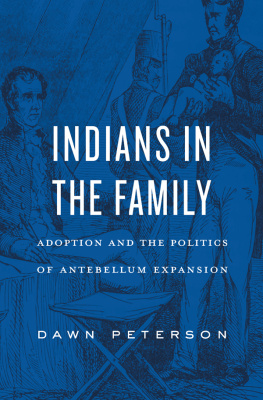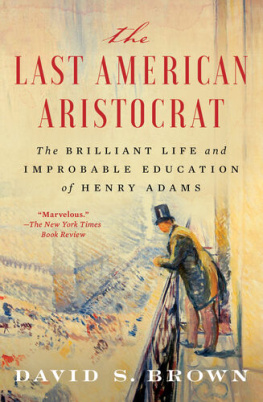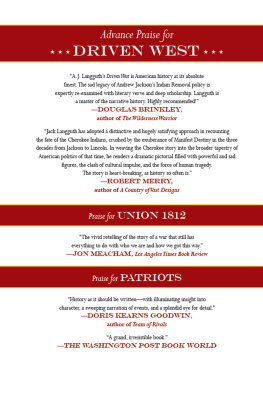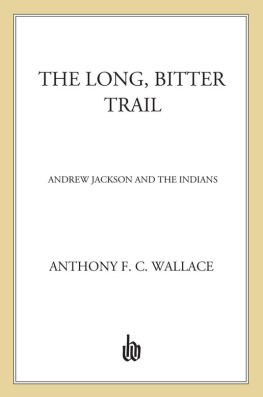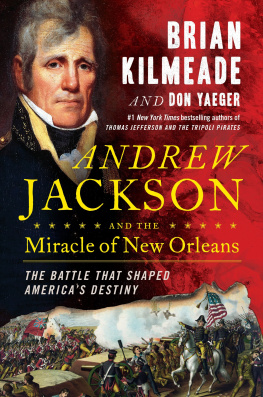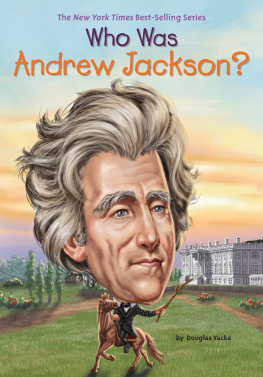Muddy boots on damask upholstery. Apart from the rugged face with its mane of tousled hair staring from the $20 bill, thats the one indelible image nearly every American has of Andrew Jackson : the teeming, unwashed mob of his frontier followers celebrating his first inaugural by storming the White House, crashing the genteel reception that had been planned, swilling buckets of liquor, and standing on the elegant furniture to get a better view of their hero. That chaotic scene has neatly symbolized Jacksons eruption into the presidency, the beginning of real democracy in America for better and for worse and the start of what historians call the Age of Jackson.
But the inaugural frenzy reflects only one facet of this astonishing man. Nicknamed Old Hickory for his toughness, the nations seventh president - war hero and spokesman for the frontier, the first president from west of the Alleghenies, the first born in a log cabin - fought his way to the White House. Once there, he stood for the rights of common citizens, hugely expanded the power of the presidency, turned the financial system upside down, paid off the national debt, and postponed civil war for thirty years by facing down the advocates of states rights.
Jackson was a man of and for his time, with flaws that flowed from his strengths. He was a brawler, a slave owner, a tyrant who ignored treaties and ruthlessly expelled Indians from their land. But he was also a loving husband, a general both idolized and feared by his troops, a man of unwavering courage, and a politician and statesman of surprising cunning and subtlety. He could be fierce or charming, courtly or threatening, tempestuous or patient as the situation demanded. By the sheer force of his will, he changed America forever.
In the 1820s, Americans were seeking new fields to conquer. In just fifty years, they had won a revolution, established a new, democratic form of government, and survived a second conflict with Great Britain, the War of 1812 . New settlements sprang up beyond the Appalachian Mountains, eleven new states joined the Union, and canals and steamboats transformed commerce. The nations first railroad was built; the industrial revolution was just beginning. The population of the United States grew by 33 percent in the 1820s alone.
The people of this explosive era looked at their political leaders and decided it was time for a change. Until 1828, the American presidency had been the preserve of aristocrats from Massachusetts and Virginia, the most populous and powerful states of the republic. These were men of dispassionate intellect and cool reason; now Americans wanted a man of action, one like themselves. Previously, the popular vote had been mostly for show. Now, in state after state, the people insisted that their votes should actually count, and they used them to elect the fiery Jackson, the national hero who had triumphed at the Battle of New Orleans and restored the nations pride.
One of Jacksons chief political opponents, Henry Clay , could not believe that the killing of 2,500 Englishmen at New Orleans qualifies a person for the various, difficult, and complicated duties of the presidency. But Daniel Webster , the great senator from Massachusetts, saw the Jacksonian revolution more clearly. When he comes, Webster wrote, he will bring a breeze with him.... A breeze indeed: Jackson plunged into the presidency with both fists swinging.
Even by the standards of those days, Jackson was never politically correct. When a friend warned him that one of his decisions could cause a clamor, the president replied, I care nothing about clamors, sir!... I do precisely what I think just and right. Few of his actions caused more of a clamor than the forced removal of Creek , Cherokee , Choctaw , and other Southern tribes to the Indian Territory west of the Mississippi. The rapidly growing white population was demanding more land. In his first annual message to Congress in 1829, Jackson told the Indians they must either adapt to white society or move west.
His rationale was that the tribes would be safe west of the Mississippi, no longer in conflict with settlers who thought they had a better use for the land. But he had no qualms about ignoring inconvenient treaties and forcing them to move. Jackson sponsored and signed the Indian Removal Act , which resulted in the brutal relocation of thousands of Native Americans along the Trail of Tears to what is now Oklahoma.
By the standards of our own time, nothing is more repugnant about Andrew Jackson than his ownership and treatment of black slaves. At his most prosperous, he owned as many as 150 men, women and children, and over his lifetime, he probably had as many as 300. Worse, Jackson was a mean, even vicious master. It was his firm belief that blacks were meant to serve and whites to rule. Slaves were property, to be put to whatever use he saw fit and discarded when they had served their purpose or proved useless. He was ruthless and feared. Any slave who ran away faced 300 lashes. If the excruciating pain of the punishment did not kill the runaways, infection often did. Those who survived were ill for a long time, kept alive as testament to what awaited others who sought freedom.
Jackson, and many like him, could not fathom a society without slavery. The settlers own livelihood and the early American economy depended on it. The great American myth was that, on the frontiers, a white man could find prosperity in the soil he turned with his own hands. In truth, for most who succeeded in the South, it was on the backs of slaves, who grew the cotton, rice, and tobacco that made the country rich. Jacksons own story was spun politically to fit the myth: The war hero was cast as a penniless orphan, who had made his fortune on his own. It was a story that had mass appeal, but was true only if you ignored the captives who toiled in his fields.
When Andrew Jackson left the White House in 1837, he was seventy years old and in poor health. Yet, in the eight years left to him, he continued to fight for a stronger America. After Jacksons death, a friend summed up his career. His awful will, he wrote, stood alone, & was made the will of all he commanded.
Jacksons parents, Andrew and Elizabeth Jackson, left a life of despair and poverty in Northern Ireland in 1765 with their two young sons, Hugh and Robert, to improve their fortunes in America. Elizabeth Jackson had four sisters who had already settled in a Scotch-Irish region on the border between North and South Carolina known as the Waxhaws . When the Jacksons made the difficult journey to the same district, they knew they would be among friends.
The Waxhaws was an island of fertile soil amidst the regions scrub pine barrenness. When Elizabeth Jacksons sisters and their husbands had arrived several years earlier, there was still plenty of rich land to be had, and all of them were doing well. But there was not much fertile land left by the time the Jackson family arrived. Andrew and Elizabeth had to take 200 acres near the edge of the Waxhaws where the soil was thin and without much promise. The region was so remote in those days that it had never been surveyed, but the Jackson homestead was probably on Twelve Mile Creek, seven miles from the heart of the Waxhaws in Union County, North Carolina.
The Jacksons worked hard. Yellowed records from the time reveal they had cleared fields, built a log house, and raised at least one crop by the beginning of 1767. But carving a farm out of this wilderness was brutally hard work, and it killed Andrew Jackson. Early in 1767, he died at the age of twenty-nine from injuries suffered while trying to move a heavy log. His body was borne over a snowy track on a horse-drawn sled and buried in the churchyard in the hamlet of Waxhaw. Less than two weeks after her husbands death, Elizabeth Jackson gave birth to her third son and christened him Andrew after the father he never knew.

